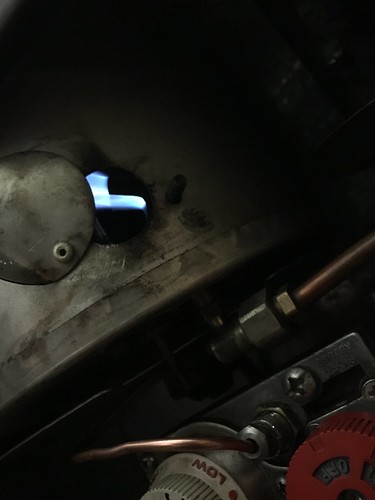Erable roles in counteracting microbial product [22]. On the other hand, M2 macrophages secret anti-inflammatory mediators in response to wound healing, host defense against inflammation [22]. In our study, we found that (CKPV)2 not only played a Candidacidal role in rat Candida Oltipraz Albicans vaginitis, but also induced anti-inflammatory effects by inducing macrophages M2 polarization, activation of MC1R appeared is involved in the process.The abdominal skin was exposed and 5 ml of PBS was injected into the peritoneal cavity and gently knead for 1? min, abdominal membrane was lift by forceps and leaned to one side to focus the fluid in the abdomen. The primary mouse peritoneal  macrophages suspension were collected into tubes and centrifuged at 1000 rpm at 4uC for 5 minutes, the supernatant was then removed. The cells were further washed and suspended (106/ml) with DMEM complete culture medium which contain 10 fetal calf serum (FCS) with penicillin/streptomycin. They were incubated at 37uC for 2 h and the adherent cells were macrophages.Candida Albicans Colony FormationCandida albicans (from Jiangsu Province Hospital, Nanjing, China) were cultured in 5 ml liquid Luria-Bertani (LB) medium and amplified for 12?6 hours, washed twice with distilled water, suspended in liquid LB medium to a final concentration of 107/ml and incubated at 30uC for 2 hours in the presence of different concentrations of (CKPV)2 or vehicle control. To determine the inhibitory effect of (CKPV)2, the Candida albicans in the absence and presence of (CKPV)2 were inoculated to Sabouraud medium and cultured at 30uC for 48 h. The amounts of colonies and the inhibition rate were calculated as previously reported [3,8,9].Rat Candida Albicans VaginitisSixty female SD rats, weighing 180?20 g, were maintained in pseudo-estrus by intragastric administration of estradiol valerate (0.8 mg/kg) per day. Four days after first administration, the rats were inoculated intravaginally with 46107 yeast cells (0.1 ml) according to
macrophages suspension were collected into tubes and centrifuged at 1000 rpm at 4uC for 5 minutes, the supernatant was then removed. The cells were further washed and suspended (106/ml) with DMEM complete culture medium which contain 10 fetal calf serum (FCS) with penicillin/streptomycin. They were incubated at 37uC for 2 h and the adherent cells were macrophages.Candida Albicans Colony FormationCandida albicans (from Jiangsu Province Hospital, Nanjing, China) were cultured in 5 ml liquid Luria-Bertani (LB) medium and amplified for 12?6 hours, washed twice with distilled water, suspended in liquid LB medium to a final concentration of 107/ml and incubated at 30uC for 2 hours in the presence of different concentrations of (CKPV)2 or vehicle control. To determine the inhibitory effect of (CKPV)2, the Candida albicans in the absence and presence of (CKPV)2 were inoculated to Sabouraud medium and cultured at 30uC for 48 h. The amounts of colonies and the inhibition rate were calculated as previously reported [3,8,9].Rat Candida Albicans VaginitisSixty female SD rats, weighing 180?20 g, were maintained in pseudo-estrus by intragastric administration of estradiol valerate (0.8 mg/kg) per day. Four days after first administration, the rats were inoculated intravaginally with 46107 yeast cells (0.1 ml) according to  established procedures [24?6]. To assess the antifungal activity of (CKPV)2, the rats were treated with blank matrix gel (0.2 ml/rat), miconazole gel (0.5 mg/kg ), a-MSH gel (1.7 mg/ kg) or (CKPV)2 gel (2, 1 and 0.5 mg/kg) respectively per day. Vaginal fluid was collected from each animal at 0, 3, 11, 18 days after administration to calculate the colony forming units (CFUs). At the end of the experiments, all the rats were sacrificed and their vaginal tissues were dissociated for 15755315 immunohistochemistry examination. This study was carried out in strict accordance with the recommendations in the Guide for the Care and Use of Laboratory Animals of the NSFC. The protocol was Madrasin approved by the Committee on the Ethics of Animal Experiments of the Nanjing Pharmaceutical University. All surgery was performed under proper anesthesia, and all efforts were made to minimize suffering.Materials and Methods Reagents(CKPV)2 and a-MSH were synthesized and provided by Hefei Zhaoke Pharmaceutical Co. Ltd.Primary Culture of Mouse Peritoneal MacrophagesPrimary culture of mouse peritoneal macrophages was similar as previously described [23], the generation of macrophages was induced by intra-peritoneal injection 3 mL of 3 thioglycolate (Sigma Aldrich Fluka, USA) dissolved in phosphate-buffered saline (PBS). After three days, the mice were sacrificed, immersed with 75 ethanol for 2? minutes, immobilized on the autopsy table.ImmunohistochemistryFormalin-fixed paraffin-embedded vaginal tiss.Erable roles in counteracting microbial product [22]. On the other hand, M2 macrophages secret anti-inflammatory mediators in response to wound healing, host defense against inflammation [22]. In our study, we found that (CKPV)2 not only played a Candidacidal role in rat Candida albicans vaginitis, but also induced anti-inflammatory effects by inducing macrophages M2 polarization, activation of MC1R appeared is involved in the process.The abdominal skin was exposed and 5 ml of PBS was injected into the peritoneal cavity and gently knead for 1? min, abdominal membrane was lift by forceps and leaned to one side to focus the fluid in the abdomen. The primary mouse peritoneal macrophages suspension were collected into tubes and centrifuged at 1000 rpm at 4uC for 5 minutes, the supernatant was then removed. The cells were further washed and suspended (106/ml) with DMEM complete culture medium which contain 10 fetal calf serum (FCS) with penicillin/streptomycin. They were incubated at 37uC for 2 h and the adherent cells were macrophages.Candida Albicans Colony FormationCandida albicans (from Jiangsu Province Hospital, Nanjing, China) were cultured in 5 ml liquid Luria-Bertani (LB) medium and amplified for 12?6 hours, washed twice with distilled water, suspended in liquid LB medium to a final concentration of 107/ml and incubated at 30uC for 2 hours in the presence of different concentrations of (CKPV)2 or vehicle control. To determine the inhibitory effect of (CKPV)2, the Candida albicans in the absence and presence of (CKPV)2 were inoculated to Sabouraud medium and cultured at 30uC for 48 h. The amounts of colonies and the inhibition rate were calculated as previously reported [3,8,9].Rat Candida Albicans VaginitisSixty female SD rats, weighing 180?20 g, were maintained in pseudo-estrus by intragastric administration of estradiol valerate (0.8 mg/kg) per day. Four days after first administration, the rats were inoculated intravaginally with 46107 yeast cells (0.1 ml) according to established procedures [24?6]. To assess the antifungal activity of (CKPV)2, the rats were treated with blank matrix gel (0.2 ml/rat), miconazole gel (0.5 mg/kg ), a-MSH gel (1.7 mg/ kg) or (CKPV)2 gel (2, 1 and 0.5 mg/kg) respectively per day. Vaginal fluid was collected from each animal at 0, 3, 11, 18 days after administration to calculate the colony forming units (CFUs). At the end of the experiments, all the rats were sacrificed and their vaginal tissues were dissociated for 15755315 immunohistochemistry examination. This study was carried out in strict accordance with the recommendations in the Guide for the Care and Use of Laboratory Animals of the NSFC. The protocol was approved by the Committee on the Ethics of Animal Experiments of the Nanjing Pharmaceutical University. All surgery was performed under proper anesthesia, and all efforts were made to minimize suffering.Materials and Methods Reagents(CKPV)2 and a-MSH were synthesized and provided by Hefei Zhaoke Pharmaceutical Co. Ltd.Primary Culture of Mouse Peritoneal MacrophagesPrimary culture of mouse peritoneal macrophages was similar as previously described [23], the generation of macrophages was induced by intra-peritoneal injection 3 mL of 3 thioglycolate (Sigma Aldrich Fluka, USA) dissolved in phosphate-buffered saline (PBS). After three days, the mice were sacrificed, immersed with 75 ethanol for 2? minutes, immobilized on the autopsy table.ImmunohistochemistryFormalin-fixed paraffin-embedded vaginal tiss.
established procedures [24?6]. To assess the antifungal activity of (CKPV)2, the rats were treated with blank matrix gel (0.2 ml/rat), miconazole gel (0.5 mg/kg ), a-MSH gel (1.7 mg/ kg) or (CKPV)2 gel (2, 1 and 0.5 mg/kg) respectively per day. Vaginal fluid was collected from each animal at 0, 3, 11, 18 days after administration to calculate the colony forming units (CFUs). At the end of the experiments, all the rats were sacrificed and their vaginal tissues were dissociated for 15755315 immunohistochemistry examination. This study was carried out in strict accordance with the recommendations in the Guide for the Care and Use of Laboratory Animals of the NSFC. The protocol was Madrasin approved by the Committee on the Ethics of Animal Experiments of the Nanjing Pharmaceutical University. All surgery was performed under proper anesthesia, and all efforts were made to minimize suffering.Materials and Methods Reagents(CKPV)2 and a-MSH were synthesized and provided by Hefei Zhaoke Pharmaceutical Co. Ltd.Primary Culture of Mouse Peritoneal MacrophagesPrimary culture of mouse peritoneal macrophages was similar as previously described [23], the generation of macrophages was induced by intra-peritoneal injection 3 mL of 3 thioglycolate (Sigma Aldrich Fluka, USA) dissolved in phosphate-buffered saline (PBS). After three days, the mice were sacrificed, immersed with 75 ethanol for 2? minutes, immobilized on the autopsy table.ImmunohistochemistryFormalin-fixed paraffin-embedded vaginal tiss.Erable roles in counteracting microbial product [22]. On the other hand, M2 macrophages secret anti-inflammatory mediators in response to wound healing, host defense against inflammation [22]. In our study, we found that (CKPV)2 not only played a Candidacidal role in rat Candida albicans vaginitis, but also induced anti-inflammatory effects by inducing macrophages M2 polarization, activation of MC1R appeared is involved in the process.The abdominal skin was exposed and 5 ml of PBS was injected into the peritoneal cavity and gently knead for 1? min, abdominal membrane was lift by forceps and leaned to one side to focus the fluid in the abdomen. The primary mouse peritoneal macrophages suspension were collected into tubes and centrifuged at 1000 rpm at 4uC for 5 minutes, the supernatant was then removed. The cells were further washed and suspended (106/ml) with DMEM complete culture medium which contain 10 fetal calf serum (FCS) with penicillin/streptomycin. They were incubated at 37uC for 2 h and the adherent cells were macrophages.Candida Albicans Colony FormationCandida albicans (from Jiangsu Province Hospital, Nanjing, China) were cultured in 5 ml liquid Luria-Bertani (LB) medium and amplified for 12?6 hours, washed twice with distilled water, suspended in liquid LB medium to a final concentration of 107/ml and incubated at 30uC for 2 hours in the presence of different concentrations of (CKPV)2 or vehicle control. To determine the inhibitory effect of (CKPV)2, the Candida albicans in the absence and presence of (CKPV)2 were inoculated to Sabouraud medium and cultured at 30uC for 48 h. The amounts of colonies and the inhibition rate were calculated as previously reported [3,8,9].Rat Candida Albicans VaginitisSixty female SD rats, weighing 180?20 g, were maintained in pseudo-estrus by intragastric administration of estradiol valerate (0.8 mg/kg) per day. Four days after first administration, the rats were inoculated intravaginally with 46107 yeast cells (0.1 ml) according to established procedures [24?6]. To assess the antifungal activity of (CKPV)2, the rats were treated with blank matrix gel (0.2 ml/rat), miconazole gel (0.5 mg/kg ), a-MSH gel (1.7 mg/ kg) or (CKPV)2 gel (2, 1 and 0.5 mg/kg) respectively per day. Vaginal fluid was collected from each animal at 0, 3, 11, 18 days after administration to calculate the colony forming units (CFUs). At the end of the experiments, all the rats were sacrificed and their vaginal tissues were dissociated for 15755315 immunohistochemistry examination. This study was carried out in strict accordance with the recommendations in the Guide for the Care and Use of Laboratory Animals of the NSFC. The protocol was approved by the Committee on the Ethics of Animal Experiments of the Nanjing Pharmaceutical University. All surgery was performed under proper anesthesia, and all efforts were made to minimize suffering.Materials and Methods Reagents(CKPV)2 and a-MSH were synthesized and provided by Hefei Zhaoke Pharmaceutical Co. Ltd.Primary Culture of Mouse Peritoneal MacrophagesPrimary culture of mouse peritoneal macrophages was similar as previously described [23], the generation of macrophages was induced by intra-peritoneal injection 3 mL of 3 thioglycolate (Sigma Aldrich Fluka, USA) dissolved in phosphate-buffered saline (PBS). After three days, the mice were sacrificed, immersed with 75 ethanol for 2? minutes, immobilized on the autopsy table.ImmunohistochemistryFormalin-fixed paraffin-embedded vaginal tiss.
